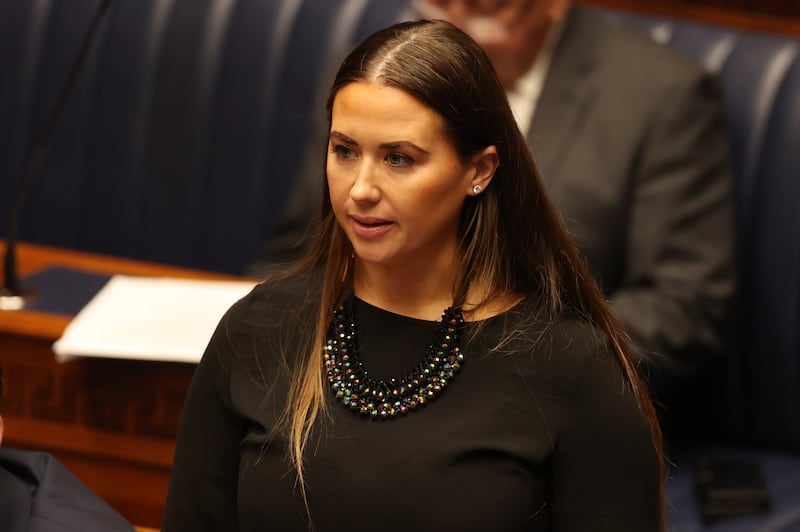Sinn Féin has announced it will not field a Westminster candidate in Lagan Valley, where the race for the seat is expected to be close between the DUP and the Alliance Party.
Conor Murphy, who has assumed the role of Sinn Féin’s director of elections upon returning to work after suffering a mini-stroke earlier this month, confirmed his party would not stand in Lagan Valley, where it attracted 2.4% of the vote share in 2019.
Mr Murphy, Stormont’s economy minister, also said Sinn Féin would not stand yet again in East Belfast, North Down, or South Belfast, and urged voters in the four constituencies to vote for “progressive parties who will reject Tory cuts and Tory pacts”.
In Lagan Valley in 2019, then-DUP leader Sir Jeffrey Donaldson won the seat with 43.1% of the vote share, down from 59.6% in the 2017 Westminster election.

With Sir Jeffrey not standing as he faces historical sex charges, pundits’ eyes are on Lagan Valley to see if the DUP’s Jonathan Buckley can hold the seat for his party in the face of a rising Alliance Party vote.
Alliance claimed 11.1% of the Lagan Valley vote in 2017, and the vote share jumped to 28.8% in 2019 when Sorcha Eastwood stood as the party’s candidate.
- Alliance leader Naomi Long confirms she will contest East Belfast election seatOpens in new window
- Brian Feeney: The big question for this election is if the raison d’etre for the north is goneOpens in new window
- DUP ‘willing to step aside’ in Fermanagh-South Tyrone for pro-union candidateOpens in new window
It is expected that the race for the seat will be tighter for the DUP than it has ever been now that Sir Jeffrey, who had held the seat since 1997, is not on the ballot.

Meanwhile, Sinn Féin last stood in South Belfast in 2017, where candidate Máirtín Ó Muilleoir won 16.3% of the vote share, and in East Belfast that same year, when the party claimed just 2.1%.
The gap between the DUP and Alliance in East Belfast narrowed between from 2017 to 2019 also, and July is also expected to see a close race between the two party’s leaders, Gavin Robinson and Naomi Long.
In North Down, where Sinn Féin also last stood in 2017, it earned just 1.4% of the vote share.
“We have decided to give the best chance in those four constituencies to those progressive and inclusive candidates who can win,” Mr Murphy said.
“It was not an easy decision for Sinn Féin to make but we believe it is in the best interests of society here in the north.”









